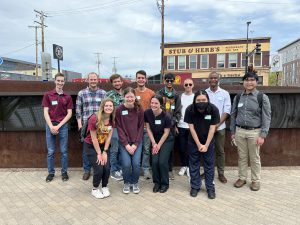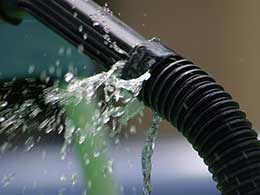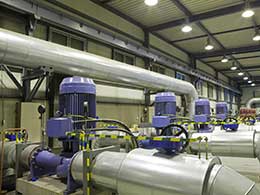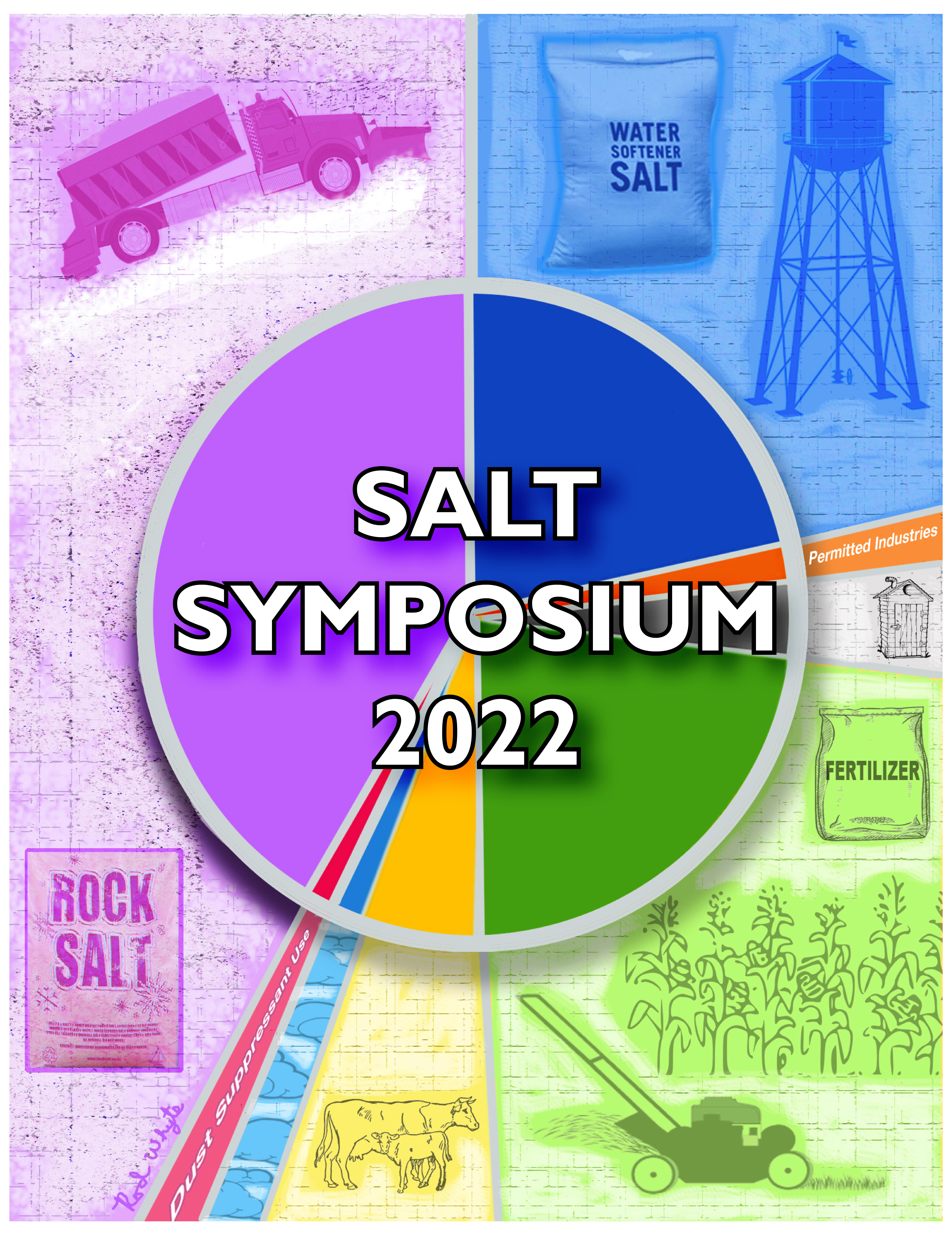June 2022
Inside the Newsletter:
2022 Intern Program | Water Efficiency Projects | Waste Reduction Projects | Energy Efficiency Projects | Salt Symposium | Intern Symposium | Funding Opportunities
2022 MnTAP Intern Program Launched
For the 2022 MnTAP Intern Program students are back working at their facilities full time. The 2022 cohort of 16 young professionals is comprised of students from University of Minnesota, Twin Cities, University of Minnesota, Duluth, Macalester College, and St. Cloud State University. These interns bring expertise from the fields of Chemical Engineering, Environmental Chemistry, Mechanical Engineering, Bioproducts and Biosystems Engineering, and Sustainable Systems Management.
For many companies, tackling energy efficiency, waste reduction, and water conservation projects can be challenging. Pressing demands, such as production concerns or a lack of human and capital resources, can make it difficult for businesses to research and analyze potential opportunities for waste reduction. That’s where MnTAP interns can help. With a highly qualified intern dedicated solely to their project, companies have been able to address efficiency concerns fast with incredible results.
During their 12-week summer appointment, interns will analyze current processes, investigate alternatives and define best management practices to reduce water usage, conserve energy, reduce waste and improve process efficiency to help meet business environmental and cost savings goals. The 2022 MnTAP Intern cohort completed their training and have begun project work. Save the Date for the 2022 MnTAP Intern Symposium scheduled for Wednesday August 17, 2022 from 12:30 – 4:00 pm CDT. This event will be streamed live from the Symposium venue at McNamara Alumni Center at the University of Minnesota. Register now and get this fun, informative event on your calendar!
Funding partners include Legislative-Citizen Commission on Minnesota Resources (Non-metro water conservation), Metropolitan Council, Environmental Services with funding from the Clean Water Land and Legacy Amendment (water conservation), Minnesota Pollution Control Agency and EPA Region 5 (pollution prevention), CenterPoint Energy, Xcel Energy (energy efficiency) and Tri-County Solid Waste Management Commission (food waste). With this partner support, interns can work with companies across the state to uncover pollution prevention, waste reduction, water and energy efficiency opportunities.
Water Efficiency Intern Projects
Even in the Land of 10,000 Lakes, the costs and impacts of consuming water can add up quickly for companies. With economic and environmental impacts in mind, many businesses are considering how to conserve more water in their operations and improve the efficiency of their facilities. MnTAP Interns help companies optimize water use, avoid additional charges associated with water use, and reduce environmental impact. This summer MnTAP interns are mapping how water is used across their facilities and identifying opportunities for conservation through maintenance, process modifications and rethinking how water is used.
Here are several projects with significant water efficiency components:
- Ball Corporation, Saint Paul, MN – Lead a project focused on chemical use reduction and water conservation at a can manufacturing facility.
- Seagate Technology, Bloomington, MN – Lead a project focused on water conservation and energy efficiency.
- Twin City Tanning, South St Paul, MN – Lead a project focused on water conservation and wastewater loading reduction.
- Heartland Corn Products, Winthrop, MN – Lead a project focused on water conservation at an ethanol plant.
- Kemps, Farmington, MN – Lead a project focused on water conservation at a local food manufacturing facility.
Waste Reduction Intern Projects
 2022 is a big year for waste reduction projects. Optimizing processes to minimize single use packaging is an objective at three facilities this summer. A St. Cloud based partnership is exploring a pilot program to increase the beneficial reuse of food waste for energy generation through anaerobic digestion. An intern partnership with the Minnesota Grocers Association is seeking to develop recommendations to help owners of small refrigeration systems optimize their operations to decrease the release of refrigerants. Waste reduction from plating and painting operations is the focus at Advance Corporation. Optimizing material use and reducing waste can make operations more efficient, resulting in cost savings for purchasing, handling, and disposal of raw materials and byproducts.
2022 is a big year for waste reduction projects. Optimizing processes to minimize single use packaging is an objective at three facilities this summer. A St. Cloud based partnership is exploring a pilot program to increase the beneficial reuse of food waste for energy generation through anaerobic digestion. An intern partnership with the Minnesota Grocers Association is seeking to develop recommendations to help owners of small refrigeration systems optimize their operations to decrease the release of refrigerants. Waste reduction from plating and painting operations is the focus at Advance Corporation. Optimizing material use and reducing waste can make operations more efficient, resulting in cost savings for purchasing, handling, and disposal of raw materials and byproducts.
Here are several projects with significant waste reduction components:
- Miller Manufacturing Company,Glencoe, MN– Lead a project focused waste and energy reduction at a manufacturer and distributor of farm, ranch and pet products.
- Minnesota Grocers Association,Saint Paul, MN– Lead a project focused on refrigeration system best practices and recommendations for small grocery stores in Minnesota.
- U Market Services, University of Minnesota, Minneapolis, MN – Lead a project focused on the development, trial and implementation of strategies that minimize single-use packaging.
- Beckman Coulter, Chaska, MN – Lead a project focused on waste reduction at a medical diagnostics manufacturer.
- St. Cloud Nutrient, Energy and Water Recovery Facility,St. Cloud, MN in partnership with Tri County Solid Waste and Donohue & Associates – Lead a pilot project focused on the anaerobic digestion of food waste.
- Advance Corporation, Cottage Grove, MN– Lead a project focused on pollution prevention at a braille signage and awards manufacturing facility.
Energy Efficiency Intern Projects
All businesses, particularly manufacturers, can benefit from implementing energy conservation solutions. Doing so can help processes run more efficiently and reduce costs. This year two intern projects will focus on the water/energy nexus by investigating steam system efficiency and saving both energy and water. General process energy efficiency, lighting upgrades, and motor inventories will help companies identify energy efficiency opportunities in buildings and processes as well as defining the impact implementation can have on the business bottom line.
Here are several projects with significant energy efficiency components:
- M Health Fairview, Minneapolis, MN – Lead a project focused on water and energy conservation through steam system efficiency.
- Clearway Energy, Minneapolis, MN – Lead a water conservation and energy efficiency project at a steam and chilled water plant.
- Faribault Woolen Mill Co.,Faribault, MN– Lead a project focused on energy efficiency.
- Mustad USA, Forest Lake, MN – Lead a project conserving energy at a horseshoe manufacturing company.
Salt Symposium 2022 – August 2-3 Online
Stay current in the chloride conversation
Salt Symposium is dedicated to increasing awareness of the effects of chloride use and inspiring changes that lead to a lower chloride future.
Topics our experts will cover during the two-day event
- Drinking water, wastewater, and water softening
- Fertilizer, soils, and erosion control
- Citizen involvement
- Winter maintenance
- Snow and ice management future concepts
Save the Date! 2022 MnTAP Intern Symposium
 Plan to attend the 2022 MnTAP Intern Symposium scheduled for Wednesday August 17, 2022 from 12:30 – 4:00 pm CDT. This event will be streamed live from the Symposium venue at McNamara Alumni Center at the University of Minnesota. Register now and get this fun, informative event on your calendar!
Plan to attend the 2022 MnTAP Intern Symposium scheduled for Wednesday August 17, 2022 from 12:30 – 4:00 pm CDT. This event will be streamed live from the Symposium venue at McNamara Alumni Center at the University of Minnesota. Register now and get this fun, informative event on your calendar!
MnTAP is proud to host 16 interns at companies throughout the state this summer. All the interns for the 2022 MnTAP Intern Program cohort have reported to their company sites and have begun working on their projects. In three short months, these same students will have collaborated with their company hosts to scope and launch implementation of projects to use materials more efficiently, reduce waste, decrease use of hazardous materials, improve energy efficiency, and save water. This will be an inspiring afternoon that you will not want to miss!
Funding Opportunities
Dry Cleaner Cost Share Program
Minnesota has banned the use of Perchloroethylene (perc) as a dry-cleaning solvent starting in 2026. This cost share funding can help your dry-cleaning business switch away from perc.
Awards:
Up to $20,000 per applicant
Awards will be made to eligible applicant on a first come, first served basis. Early application improves the chance of funding availability.
Eligible Applicants:
Owners/operators of dry cleaning facilities in Minnesota that use or are eliminating PERC.
Eligible projects must eliminate PERC.
Application Deadline:
Monday April 1, 2024
The RFP will remain open and application accepted on a rolling basis until all dedicated funds have been dispersed, whichever comes first.
Applicants are encouraged to take advantage of matching fund opportunities such as the MPCA Small Business Loan Program which covers equipment costs up to $75,000 at 0% interest.
LEARN MOREIf you are a small dry-cleaning business owner and would like assistance applying for this grant, please contact MnTAP at 612-624-1300 or email MnTAP at mntap@umn.edu and leave your contact information.
Grants for Improving Air Quality through Pollution Reduction
MPCA is offering up to $89,000 for projects that will reduce air emissions
Maximum Grant Award:
$25,000 per applicant (see details for match requirements)
Eligible Applicants:
Businesses < 500 employees, governmental agencies, educational institutions, tribes, NGOs
Application Deadline:
Wednesday, July 27, 2022, 4:00 pm CDT
If you are a small business owner and would like assistance applying for this grant, please contact MnTAP at 612-624-1300 or email MnTAP at mntap@umn.edu and leave your contact information.



